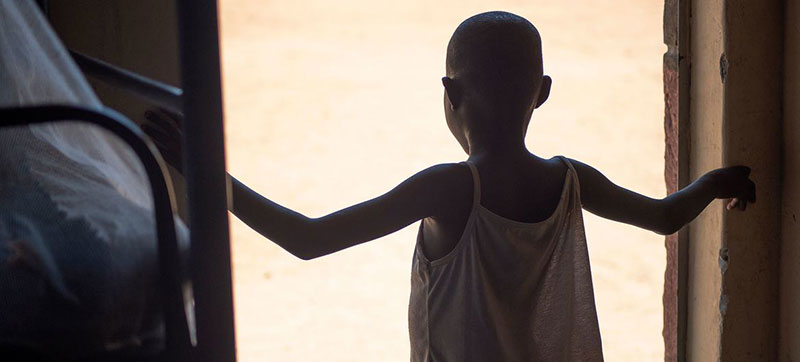 Female Genital Mutilation
Female Genital Mutilation The COVID-19 pandemic could reverse decades of global progress in stamping out female genital mutilation (FGM), UN agencies warn ahead of the International Day to eliminate the harmful practice.
Shuttered schools, lockdowns and disruption to services that protect girls, have put millions worldwide at increased risk of being subjected to FGM.
This means an additional two million girls could be affected by 2030, according to the UN children’s agency, UNICEF, resulting in a 33 per cent reduction in global efforts toward eradication.
Losing ground
“We are losing ground in the fight to end female genital mutilation, with dire consequences for millions of girls where the practice is most prevalent,” said Nankali Maksud, UNICEF Senior Advisor, Prevention of Harmful Practices.
“When girls are not able to access vital services, schools and community networks, their risk of female genital mutilation significantly increases – threatening their health, education and future.”
In marking the International Day of Zero Tolerance for Female Genital Mutilation, observed annually on 6 February, UN agencies are appealing for stronger action to uphold the human rights, health and integrity of women and girls.
At least 200 million across the world today have undergone FGM, which refers to all procedures that involve altering or injuring the female genitalia for non-medical reasons.
FGM is mostly carried out on young girls between infancy and age 15, according to the World Health Organization (WHO), and for a variety of cultural and social reasons which vary from region to region.
For example, in some communities it is considered a necessary part of raising a girl and preparing her for adulthood and marriage. In others, FGM is associated with cultural ideals of femininity and modesty.
Girls who undergo FGM, experience short-term complications such as severe pain, shock, excessive bleeding, infections, and difficulty in passing urine. There are also long-term impacts on their sexual and reproductive health, and on mental health.
‘Medicalization’ of FGM
FGM is a global problem, according to the UN. Although primarily concentrated in 30 countries in Africa and the Middle East, it is also practiced in some countries in Asia and Latin America, and by immigrant populations in Western Europe, North America, Australia, and New Zealand.
In some countries it is still almost universal. UNICEF reports that roughly 90 per cent of girls in Djibouti, Guinea, Mali and Somalia are affected.
WHO has also pointed to an emerging alarming trend. Roughly one in four girls who have been subjected to FGM, or 52 million worldwide, were cut by health personnel, which is known as medicalization.
Ending FGM by 2030
UN agencies are working to eradicate FGM by 2030, as part of the Sustainable Development Goals (SDGs) framework.
Since 2008, UNICEF and the UN Population Fund (UNFPA) have led a joint programme that focuses on 17 countries in Africa and the Middle East, while also supporting regional and global initiatives.
Fourteen of these countries now have legal and policy frameworks banning FGM, with nearly 1,700 cases of legal enforcement and arrests.
Given the disruption caused by the pandemic, the joint programme has adapted interventions that ensure integration of FGM in humanitarian and post-crisis response.
Urgent investment now
The UN believes FGM can be eradicated in a generation, highlighting that progress is possible through ensuring girls have access to education, healthcare and employment.
While girls today are a third less likely to be subjected to the practice compared to 30 years ago, UNICEF said action must now be accelerated tenfold due to the pandemic and other overlapping crises such as rising poverty, inequality and conflict.
In his message for the International Day, UN Secretary-General António Guterres underscored that “this flagrant manifestation of gender inequality must be stopped”.
He urged people everywhere to join UN efforts to end FGM and uphold the human rights of all women and girls.
Said Mr. Guterres: “With urgent investments and timely action, we can meet the Sustainable Development Goals target of eliminating female genital mutilation by 2030 and build a world that respects women’s integrity and autonomy.”
Support Our Journalism
We cannot do without you.. your contribution supports unbiased journalism
IBNS is not driven by any ism- not wokeism, not racism, not skewed secularism, not hyper right-wing or left liberal ideals, nor by any hardline religious beliefs or hyper nationalism. We want to serve you good old objective news, as they are. We do not judge or preach. We let people decide for themselves. We only try to present factual and well-sourced news.







